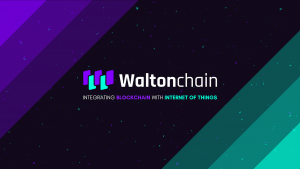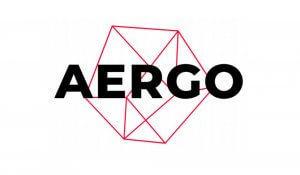Blockchain technology is progressing rapidly, especially as a hands-on solution for many existing issues in various industries. Furthermore, with COVID-19’s stress on economies globally, countries had to think outside the box to sustain every undertaking. As such, it opened doors for the assimilation of blockchain in different fortes to ensure smooth running.
A recent report shows the current and future potential of blockchain as per the year 2020. In that case, it displays the assessment of different factors pushing the technology forward and its market in different regions.
As a central focus, the Asia Pacific region, North and Latin America, Europe, Australia, and the Middle and Africa regions showed great promise in adopting blockchain. It also flags different obstacles that the technology faces despite its sure progress.
A Promise of The Future in Decentralized Technology
In the past, distributed ledger technology (blockchain technology) has been tied to improving the financial sector. However, multitudes are discovering other use cases for the technology in boosting other areas including banking, healthcare, supply chain management, gambling, voting, science, to mention but a few.
It all began with the launch of bitcoin in 2008, introducing cryptocurrencies into the monetary sector. Blockchain implements a decentralized system to store transactions (blocks) after their verification in an immutable ledger. Block validators in all the nodes on a blockchain have to verify that a transaction is valid before adding it to the chain. The whole process creates a transparent and secure way to conduct all operations.
So far, it has established an environment to achieve milestones that would have been impossible in the past. Currently, cash transfers globally are instantaneous, mitigation of information loss, pumped up security, low transaction costs, smart contracts, and more.
Countries Looking Vouching for Blockchain Technology
Blockchain and crypto enthusiasts have been waiting for governments to adopt blockchain technology to better the economy. A significant breakthrough in this advanced space is more countries looking for ways to introduce their digital currencies. Some, including China, Lithuania, Bahamas, and Sweden are a step further in Central Bank Digital Currencies. However, more regions are quickly following suit and discussing the best ways forward as far as the issue is concerned.
CBDC ideas create hope that more regions are opening up to the idea of cryptocurrencies and DLT as a whole. Furthermore, decisions to regulate the blockchain sector are also a gateway to many embracing the tech. Without further ado, here are 7 countries with impressive progress in leveraging blockchain.
China
China proves itself as an innovation hub and a force to reckon with in its technological advancements. Despite its ban on cryptocurrencies and any crypto-related activity, it shows the greatest adoption in the blockchain. It employs the tech in investments, payments, and technological infrastructures. Companies to take note of are Bitmain, Alibaba, Tencent, JD.com, Ping, and more.
As a matter of fact, the country created notable plans to develop the technology into its sectors. Among the reasons for this decision are its efficiency, scalability, and cost-effectiveness. It further introduced the Digital Yuan into its payments network to eliminate the need for physical currencies.
One plan to put in mind is the Blockchain-based Service Network (BSN), which will allow developers to create dApps for various services worldwide. The plan is a pathway for interchain, permissioned, and permissionless dApps connected to a series of blockchains. The smart contracts are present to ensure transparent transactions on the internet of blockchains. More will be seen from the industrial hub as time goes by.
Dubai (UAE)
Dubai is among the most successful places in the world, offering a space for investment opportunities. It introduced blockchain into its transactions, following the Emirates Blockchain Strategy 2021 and The Dubai Blockchain Strategy. Both work towards turning Dubai into a full blockchain-governed city with all transactions under the technology. Furthermore, it hopes to save costs while creating fast, secure, reliable, and scalable solutions.
The city hopes to continue implementing blockchain into tourism, gas and oil production, transport, processing documentation, real estate, etc. Another important contribution is Dubai putting into motion the Global Blockchain Council looking into ways to expand blockchain applications throughout the UAE. Its members include government entities, international institutions, blockchain companies, financial firms, etc.
Australia
Australia recently released its National Blockchain Roadmap, indicating its increased interest in creating a blockchain-based ecosystem. The roadmap’s objectives surround regulations, partnerships, and developments. It tries to identify any challenges it might face during the implementation of blockchain’s use cases, including finding the skilled personnel.
Australia anticipates boosted productivity, new opportunities for businesses, expansion of different sectors, saving costs, developing digital technologies, etc. One driving factor that may ensure the project’s success is the spiked interest of blockchain by its citizens and companies. In the end, it targets data preservation, security, transparency, and joint efforts to progress.
Liechtenstein
Liechtenstein is working towards being the dominant blockchain hub worldwide. As such, it is the first country to implement comprehensive blockchain regulations. The country introduced the Blockchain Act in 2016 while the Parliament passed the law in 2020. Considering the increasing number of blockchain users, Liechtenstein hoped that the Blockchain Act would be guidance and insurance for all blockchain users.
Furthermore, the country considered building a well-regulated structure to help in building the future of blockchain undertakings. While the Act’s focus is on tokenization of digital securities, it will delve beyond the financial realm into supply chain, real estate, transport, communication, etc.
The Liechtenstein Financial Market Authority will be the regulator for all activities concerning the Blockchain Act. It is well-assimilated to international laws of blockchain transactions, including AML and KYC, enabling it to blend into local and global blockchain systems.
South Africa
South Africa stands as one of the most industrialized and infrastructurally developed countries in Africa. It is also leading in crypto activity both in the continent and globally. South Africa envisions blockchain technology as Africa’s future and a way forward to expanding its economic power. Therefore, it takes to heart spreading blockchain education throughout the continent. Some of the startups leading in the same are TariLabsU, UABA, and BECSA.
Moreover, the country hosts annual Blockchain Africa Conferences that attract blockchain gurus worldwide to discuss blockchain’s future worldwide. It further encourages ideas on how best to implement blockchain into real-world use cases. This platform is an excellent place to drive blockchain adoption showing increased South Africa’s interest in the technology. Finally, it is home to an array of blockchain startups looking to expand services into different sectors of the African community, such as finance, energy, business, gaming, real estate, communication, and many more.
USA
An ideal way to look into the US government’s faith in blockchain technology is its expanse in cryptocurrencies. The country has long since introduced regulators to watch over crypto transactions within the country. Some include the Financial Crimes Enforcement Network (FinCEN), The Securities and Exchange Commission (SEC), and the Office of the Comptroller of the Currency (OCC). The OCC recently gave banks the go-ahead to transact stablecoin transactions, showing that the government is slowly accepting blockchain and cryptos.
Most entities believe that USA absorbing blockchain makes it a fiercer competitor to China. Looking past all the exchanges and leading blockchain development companies based in the country, many hope to implement blockchain into elections. The process will eliminate various discrepancies present. The idea is an indicator of the baby steps the USA is taking to achieve a blockchain-powered system.
Latin America
The Latin America region is one riddled with economic difficulties. This factor comes by due to the constant inflation that leads to their economies crashing. During the COVID-19 pandemic, most citizens turned to cryptos for investments and a way to secure their financial future. But the story goes on; Latin America is home to many blockchain startups aiming at improving the livelihoods of its citizens.
For instance, Kushki is a blockchain payment system working across Latin America while offering support to Latin American service companies like Cabify. Ecolones is a Costa Rican project targeting recycling plastics while giving the community incentives to encourage their participation. Such companies are spreading across the region, providing people with education, job opportunities, investment opportunities, identification documents, and so on.
Several entities view blockchain as the savior of Latin America, and these startups are the beginning of its evolution into a new era.
Takeaway
In a futuristic world hoping to achieve new inventions, blockchain is the right tool to dive into the unchartered waters. The technology’s market is hastily on the rise while most continue to see the benefits it offers. Governments hope to become global technological and investment giants through blockchain.
On the other hand, citizens are finding new gateways for secure, sustainable, cost-efficient, options. Despite challenges facing its adoption, the progress is worth noting.
The countries above are among the many placing their bets on blockchain. To expand the scope of all use cases worldwide, countries are in a race to see the winner in adoption. However, it is necessary for the sector professionals to join hands and explore all options thought impossible to create an evolved global economy. The question is a matter of when not how.





